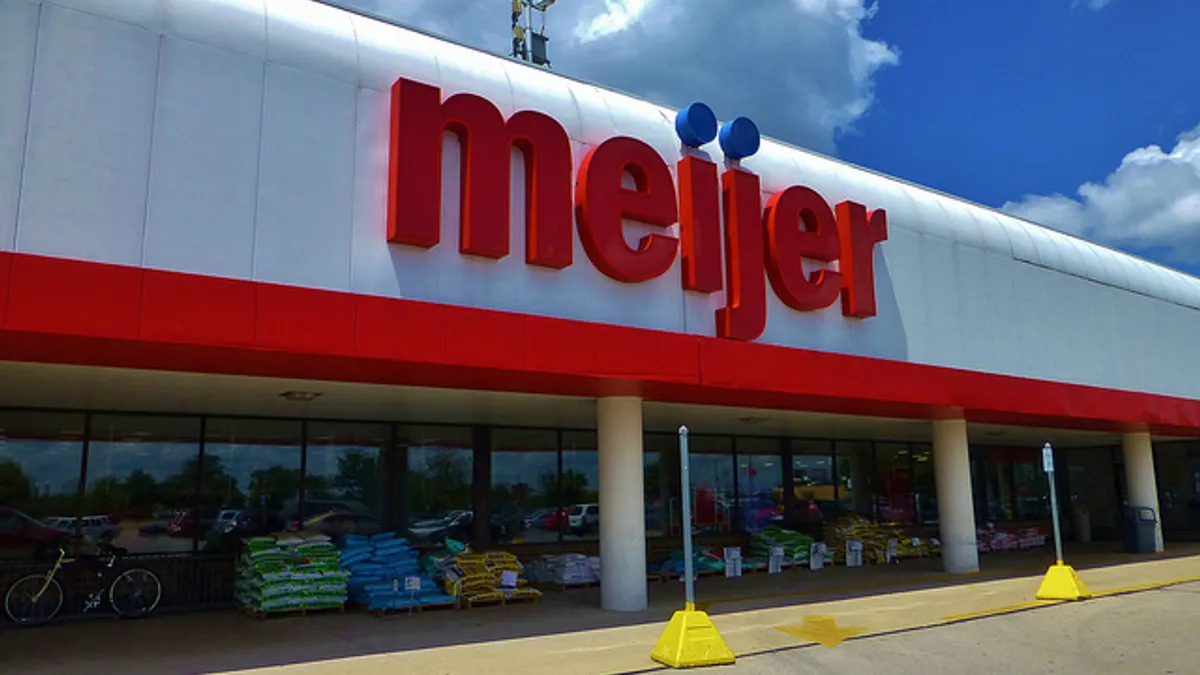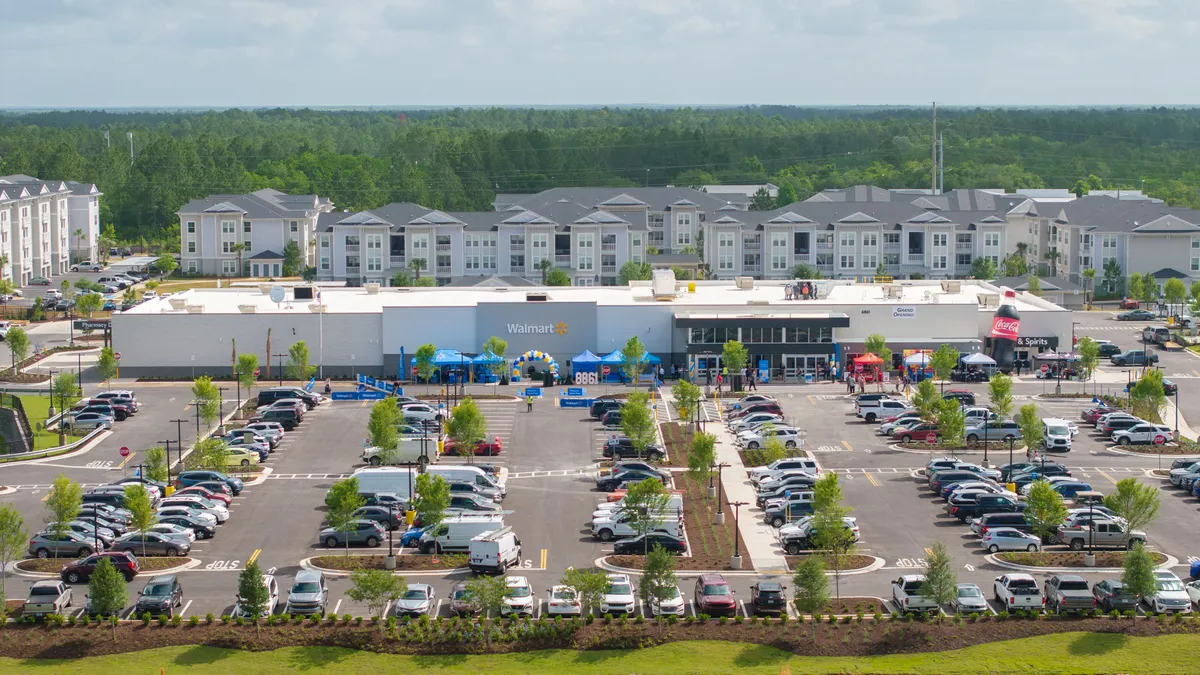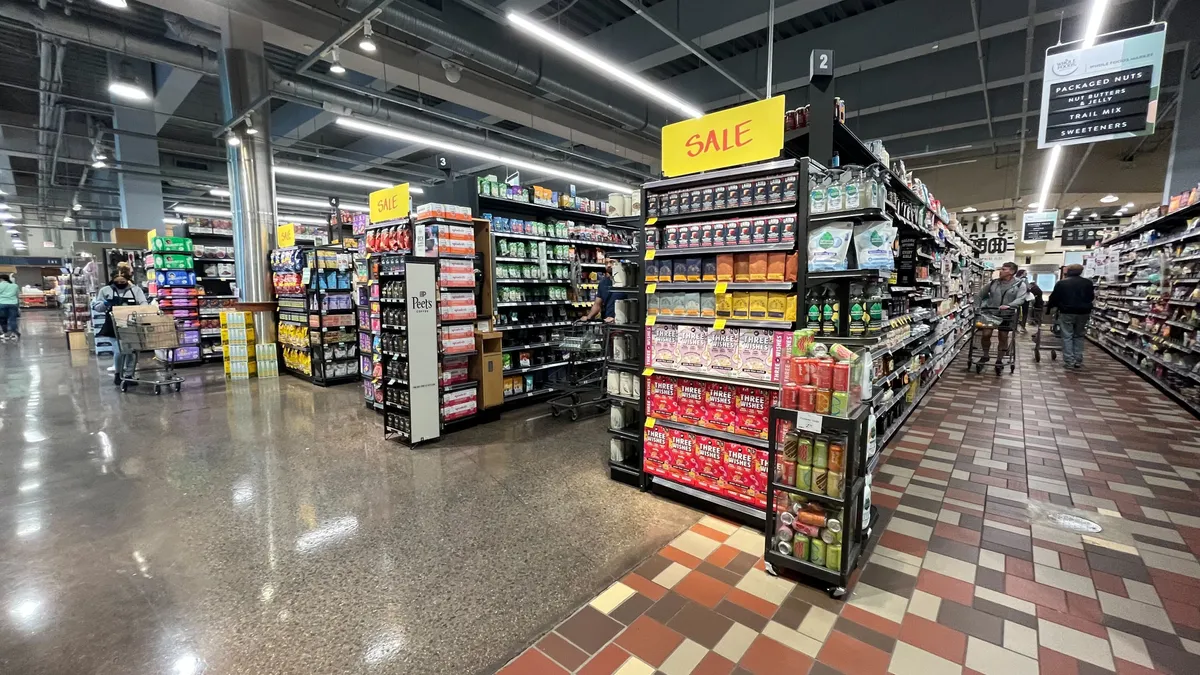Dive Brief:
- For $10, shoppers can book a round-trip ride to one of Detroit’s two Meijer stores through a startup service called Cart, according to The Detroit News.
- The trips, fulfilled by the ridesharing service Lyft, are available to people living within five miles of the two supermarket locations.
- Started by a group of students from the University of Michigan, Cart sees its service as a transportation solution for many low-income individuals who don’t have cars or access to public transport.
Dive Insight:
According to the U.S. Department of Agriculture, nearly 30 million Americans live in communities without easy access to healthy food. In the absence of meaningful policy that brings supermarkets to these underserved areas — commonly known as "food deserts" — steps like Cart’s ridesharing program serve as creative, if very limited, solutions.
Other cities have approached this problem differently. In lSt. Louis, Boston and Los Angeles, startups have set up farm stands, mobile markets, and CSA-style deliveries of fresh fruits and vegetables. A few years ago, two Seattle postgrads opened a smattering of small, low-cost grocery stores using old shipping containers.
Many of these efforts struggle to stay afloat given their high overhead costs and low returns. Cart’s business model is low on overhead, with Lyft providing the rides for shoppers. The main capital expenditure will likely be marketing the service in the neighborhoods surrounding the Meijer stores.
At the same time, Cart’s service may be a tough sell. Ten dollars seems like a lot to ask low-income customers to pay. Granted, Lyft and its drivers need to make money, and this likely reflects the real cost of driving to the store and waiting on shoppers. (The service is actually $20, with Meijer picking up half the tab.) But $10 can go a long way at a store closer to home. According to The Detroit Economic Growth Corporation, there are 77 full-service supermarkets in the city. Some officials argue the label “food desert” doesn’t apply to Detroit anymore in light of recent efforts to add independent grocers in many low-income neighborhoods.
Increasing the availability of fresh, healthy food is an important step in erasing food deserts. But as experts are quick to point out, marketing and education efforts are also needed in order to generate demand. This is why food deserts are such a persistent problem: solving them requires long-term, coordinated action and lots of money.










